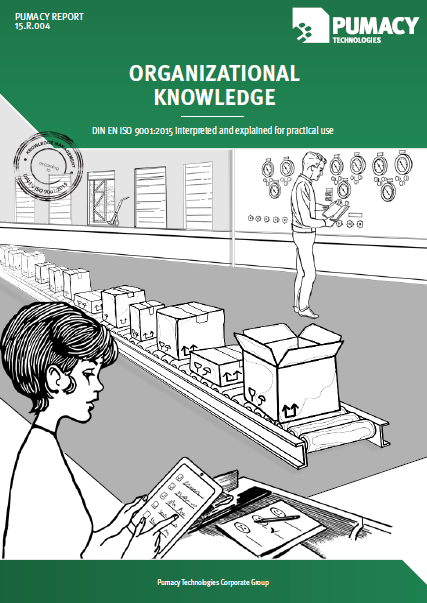Veröffentlicht am: 18.12.2016
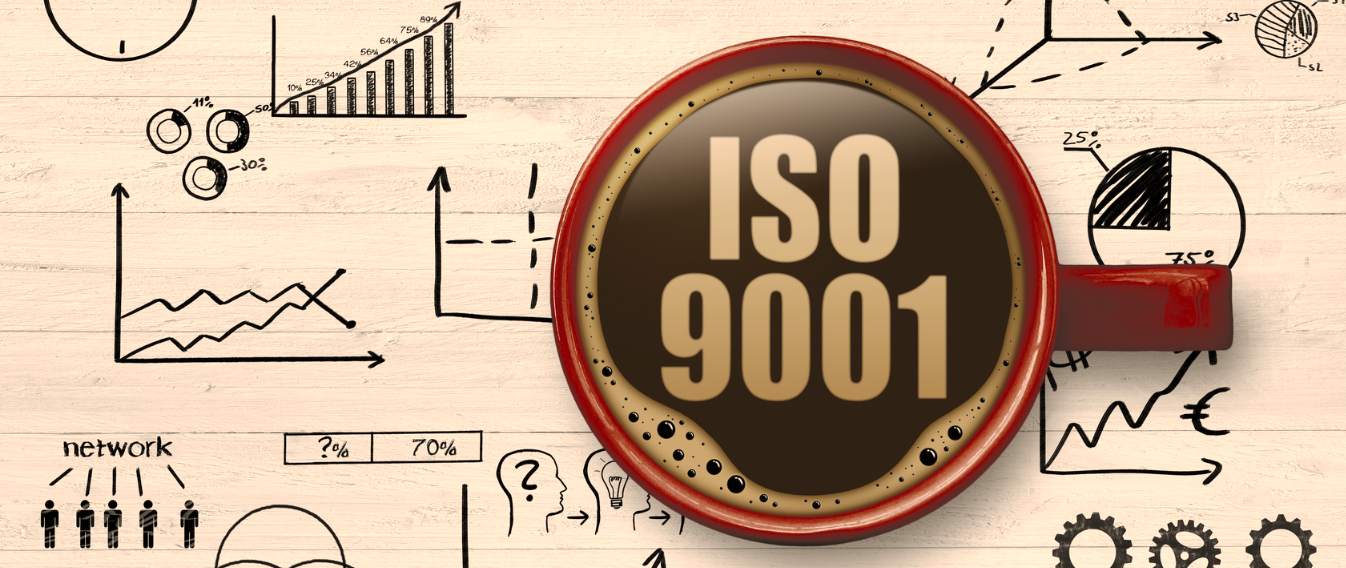
Organizational Knowledge
DIN EN ISO 9001:2015
interpreted and explained for practical use
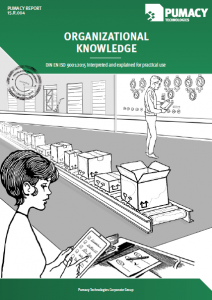 With the revision of the ISO 9001 standard, the focus of quality management is increasingly shifting towards the resource “knowledge” as an important production factor. The standard takes the fact into account, that knowledge management should not be considered a stand-alone discipline, but an essential component aimed at helping to maintain and improve the quality of products and services. In order to implement the standard, the report “Organizational Knowledge – DIN EN ISO 9001:2015 Interpreted and Explained for the Practice” reflects the new requirements and supplies pragmatic answers that are already offered by knowledge management today. In addition to expert interviews with users and an auditor, the report contains helpful checklists and FAQ’s along with a self-assessment questionnaire with regard to the current handling of knowledge in the company.
With the revision of the ISO 9001 standard, the focus of quality management is increasingly shifting towards the resource “knowledge” as an important production factor. The standard takes the fact into account, that knowledge management should not be considered a stand-alone discipline, but an essential component aimed at helping to maintain and improve the quality of products and services. In order to implement the standard, the report “Organizational Knowledge – DIN EN ISO 9001:2015 Interpreted and Explained for the Practice” reflects the new requirements and supplies pragmatic answers that are already offered by knowledge management today. In addition to expert interviews with users and an auditor, the report contains helpful checklists and FAQ’s along with a self-assessment questionnaire with regard to the current handling of knowledge in the company.
You can order the report free of charge at the end of this site.
Basis for a successful certification
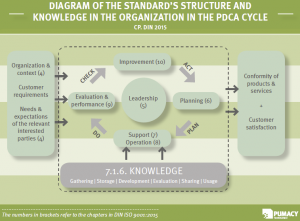 The purpose of the revision is to illustrate the changes in the quality management practice and technology use since the last major new edition in the year 2000. By now, ISO 9001 is in effect in organizations of all sizes and in all industrial sectors in more than 170 countries. The revision of ISO 9001 in September 2015 provides companies with a three-year transition period for the standard compliant implementation. In other words, no certificates according to 9001:2008 will be issued anymore after September 2018. The transition to the current certificate will only be possible with an
The purpose of the revision is to illustrate the changes in the quality management practice and technology use since the last major new edition in the year 2000. By now, ISO 9001 is in effect in organizations of all sizes and in all industrial sectors in more than 170 countries. The revision of ISO 9001 in September 2015 provides companies with a three-year transition period for the standard compliant implementation. In other words, no certificates according to 9001:2008 will be issued anymore after September 2018. The transition to the current certificate will only be possible with an
audit.
General changes relate to stronger involvement of the top management regarding responsibilities and guidance. The process-oriented approach is maintained, but the new ISO 9001 puts greater emphasis on customers and “interested circles”. Topics such as risk management, change management and also knowledge management play a vital role. Specific requirements likewise exist for “risk-based thinking”. Furthermore, the socalled high level structure will be revised in order to promote the uniformity in the various management systems.
The report “Organizational Knowledge – DIN EN ISO 9001:2015 Interpreted and Explained for the Practice” describes how an organization can fulfill the minimum requirements of ISO 9001 in regards to the resource “knowledge”, but also which hands-on procedures have proven effective for a viable knowledge organization.
How “knowledge” can be organized
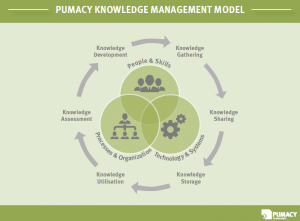 Based on experience, it is not conducive to approach the entirety of all new requirements of the standard at once, but to create smaller work packages instead. In the case of standard-related requirements pertaining to the organizational knowledge, the compilation of an overview is useful, e.g. with the help of a knowledge map; irrespective of how extensive and comprehensive the future knowledge organization will be. This step at the latest will provide insight in to what “knowledge” actually means within one’s own organization.
Based on experience, it is not conducive to approach the entirety of all new requirements of the standard at once, but to create smaller work packages instead. In the case of standard-related requirements pertaining to the organizational knowledge, the compilation of an overview is useful, e.g. with the help of a knowledge map; irrespective of how extensive and comprehensive the future knowledge organization will be. This step at the latest will provide insight in to what “knowledge” actually means within one’s own organization.
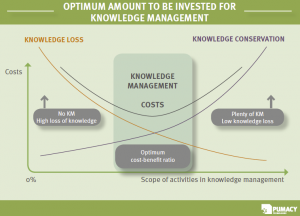 The standard, but also the discipline of knowledge management will provide hints to this end, enabling us to refer to a number of best practices. The set of methods and tools is elaborate, but a smart combination of a few practices already helps with the identification of an optimal cost-benefit ratio.
The standard, but also the discipline of knowledge management will provide hints to this end, enabling us to refer to a number of best practices. The set of methods and tools is elaborate, but a smart combination of a few practices already helps with the identification of an optimal cost-benefit ratio.
Proven and practical solutions for the first steps and beyond
This report claims to reflect the practice and to serve as a guide through the topics developing, capturing, sharing, saving, using and assessing knowledge. As a first step, the report contains a self-assessment. The 16 questions help with a preliminary assessment and especially with selfreflection in terms of weaknesses and potentials. Moreover, answers are given to frequently asked questions (FAQ ’s) to help clear first hurdles and also reduce concerns within the organization.
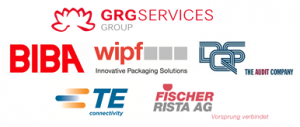 Special emphasis was placed on users: In six interviews, experts were queried about the revision and the associated requirements related to organizational knowledge; three best practices are used to describe specific applications. This helps the readers of the report to evaluate their own organization in terms of the efficient use of the resource “knowledge” and to undertake the resulting adaptations for a successful recertification.
Special emphasis was placed on users: In six interviews, experts were queried about the revision and the associated requirements related to organizational knowledge; three best practices are used to describe specific applications. This helps the readers of the report to evaluate their own organization in terms of the efficient use of the resource “knowledge” and to undertake the resulting adaptations for a successful recertification.

